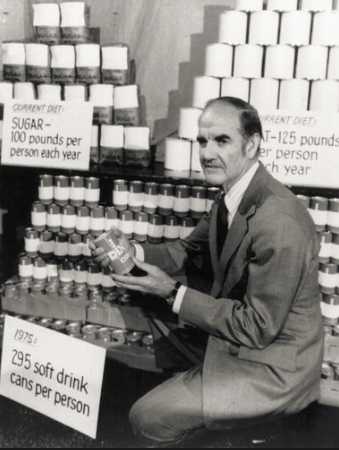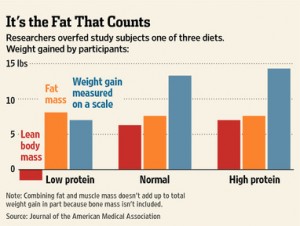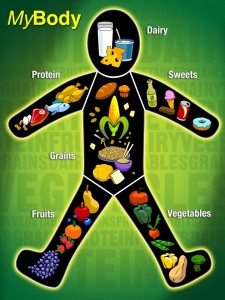The endless debates about salt: Don’t worry. Eat (real) food
Since 1980, U.S. dietary guidelines have advised eating less sodium (salt is 40% sodium, 60% chloride). Although sodium is an essential nutrient, most Americans consume way more than they need or is good for them—around 3,400 milligrams a day.
The 2010 guidelines advised healthy people to consume no more than 2,300 mg per day (~6 grams, or 1.5 teaspoons). They advised even less, 1,500 mg, for people with or at high risk for high blood pressure. Since blood pressure increases with age in countries with high salt intake, this applies or will apply to just about everyone.
In 2011, the Institute of Medicine said it was imperative to find effective strategies to lower salt intake. This means dealing with processed and restaurant foods, because that’s where most of the salt comes from, as can be seen from this list of major food sources.
Because consumers have no choice about the amount of salt in processed and restaurant foods, education cannot be enough to achieve salt reduction. Scientists in Australia have just proved this point.
Why anyone would think that nutrition education alone would change behavior is beyond me. By this time everyone should know that to change behavior requires not only education, but a food environment—social, political, economic—that supports and promotes the behavior change.
Most dietary sodium comes from processed foods, restaurant foods, and other pre-prepared foods. All the label can do is say ‘don’t eat me’ It can’t help with what people can eat.
The easiest and most effective way to help people reduce sodium intake is to require food producers and food preparers to use less of it. Good luck with that. I’m not optimistic, particularly given the conflicting and confusing science.
Ah yes. The conflicting science. The IOM now says that there’s no evidence one way or the other that reducing sodium below 2,300 mg per day, or even to 1,500 per day, does much good, and that low sodium intakes could be harmful (but this too is controversial).
Yes, they could, but as Mark Bittman blogs,
It may be true that there are no benefits in an ultra-low-salt diet, but almost no one is eating an ultra-low-salt diet. It’s not quite like worrying about whether we get “enough” sugar, but it’s nearly as ridiculous.
And now, as Food Navigator explains, the IOM committee is complaining that its report has been badly misinterpreted. All they said was:
As to whether we should cut back to 1,500 mg or to 2,300 mg sodium a day, meanwhile, the jury is out, says the IOM, not because consuming 1500 mg/day is dangerous, but because there is just not enough data on the benefits of consuming such low levels to support a firm conclusion.
IOM committee members were so bothered by misleading press accounts that they wrote an op-ed to JAMA to clarify:
Rather than focusing on disagreements about specific targets that currently affect less than 10% of the US population (ie, sodium intake of <2300 mg/d vs <1500 mg/d), the IOM, AHA, WHO, and DGA are congruent in suggesting that excess sodium intake should be reduced, and this is likely to have significant public health effects. Accomplishing such a reduction will require efforts to decrease sodium in the food environment….
The bottom line, Bittman says (and I enthusiastically agree), is that
Salt intake — like weight, and body mass index — is a convenient baseline for public policy people to talk about. If you focus on eating less salt — and, indeed, less sugar — you will inevitably eat less processed food, fast food, junk food (it’s all the same thing.) If you eat less processed food (etc.) you eat more real food. If you eat more real food, not only are you healthier, but you probably don’t have to pay attention to how much salt you’re eating. Wowie zowie.






